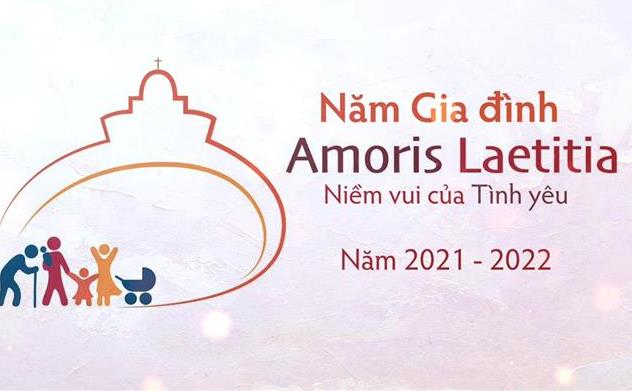11 Sunday of the Year A
Ex 19:2-6a; Rom 5:6-11; Mt 9:36-10:8
The word of God in today's Gospel speaks of the urgency of the apostolic work. Jesus said to his disciples: The harvest is abundant, but the laborers are few; so ask the master of the harvest to send out his laborers for his harvest (Mt 9:38).
 In a broad sense of the word, all God's people through baptism and confirmation are called to be laborers for God's harvest. Today’s gospel tells us Jesus chose twelve close disciples to be his apostles. He gave them authority, making Peter their leader and the visible head of the Church. The purpose was to unite the faithful in the faith and fellowship. The Decree on the Ministry and Life of Priests stated: Christ, through the apostles themselves, made their successors, the bishops, sharers in His consecration and mission. The office of their ministry has been handed down, in a lesser degree, indeed to the priests. (Priestly Life and Ministry # 2).
In a broad sense of the word, all God's people through baptism and confirmation are called to be laborers for God's harvest. Today’s gospel tells us Jesus chose twelve close disciples to be his apostles. He gave them authority, making Peter their leader and the visible head of the Church. The purpose was to unite the faithful in the faith and fellowship. The Decree on the Ministry and Life of Priests stated: Christ, through the apostles themselves, made their successors, the bishops, sharers in His consecration and mission. The office of their ministry has been handed down, in a lesser degree, indeed to the priests. (Priestly Life and Ministry # 2).
After the second Vatican Council, we experienced considerable changes in the church especially in the liturgy. From the Second Vatican Council until now, almost a half century later, the Catholic Church has been undergone a crisis in vocation to the priesthood and religious life especially in Europe and America. After the Second Vatican Council, the church lost a good number of priests, religious men and women due to different reasons such as a crisis of faith, a crisis of conscience and a crisis of identity and crisis of sexuality.
Some objected to the loss of the Tridentine Mass, the old rite of the Latin mass, instead of the new mass in vernacular languages. The old Latin Mass was uniform in similar settings, in the use of the same text in Latin with Gregorian songs. Others were unwilling to accept the changes in the new mass. Losing a number of priests without being supplied with another number of priests created a shortage of priests.
The reason is after the second Vatican Council, young men and women seldom saw priest and religious men and women on the streets or in public gatherings. Not because priests and religious men and women were not present in those places, but because they did not want to wear their clerical collars and religious habits. Therefore, the image of priests and religious men and women were not in the mind of young people. When young people do not see a clerical collar in public, they might not think about the priestly life.
After the Council, some religious communities decided to go secular in their dress and their ways of life with intention to convert the world. They made a few converts in the world. However, when they went secular, they lost their religious ways of life necessary to foster their vocation. Therefore, those religious communities faced crisis in their religious life from within and shortage of vocation from outside. Those religious communities who still maintained their traditional ways of life did not face shortage of vocation. That corresponds to young people’s reasoning. The young people maintain religious life must have something different. If there is no difference in the religious way of life, hey rather stay in their lay state of life. To face a pessimistic view, we must realize that every time we face a big change either in the church, in the government or in an organization to which we belong, we should expect reaction to it: either favorable or unfavorable. We are still in the transient time of pre-Vatican and post-Vatican II. We are still facing a crisis of vocation in the priesthood and religious life.
However, with faith, we should hope that when the Church pass the transient period of pre-Vatican and post-Vatican II and when members of the ordained clergy and religious men and women recognize their identity and live their identity, then vocation to the priesthood and religious life would increase.
So at the meantime, how can we promote vocation to the priesthood and religious life? Father Franklyn M. McAfee pointed out concrete ways to help foster and develop vocation in the American family. He suggested seven points for parents to do in the family to promote vocation. Children will think about vocation to the priesthood and religious life, when they see and hear those following in their family:
- Their family attends Sunday mass with preparation in advance, come early and stay a few minutes after mass for thanksgiving.
- Their family prays and prays the rosary in the evening and say grace before meals.
- Their family gives devotion to the Mother of the priests in a special way devoutly.
- Virtuous stories such as the stories of Saint John Bosco and Saint John Vianney.
- Good stories about priests such as this priest married their parents, that priest baptized the children.
- Examples of sacrifice instead of hearing only about money business and enjoyment. One reason for the shortage of vocation is when children used to receive what they wanted. That is why they felt it hard to give away and renounce.
- The Holy Father’s picture and good stories about him and the family pray for him [1] .
If we put these seven points into practice in the family and there is no vocation in the family, then the parents still attain a general goal in promoting vocation and living the Christian ideal. Their children, who marry, in state of entering the priesthood and religious life, would educate their own children or grandchildren like the way they themselves were educated. Perhaps vocation might come in the next generation. According to the command of the Lord, each one of us should continue to pray for more laborers in the vineyard of God; each one of us should pray for more vocation to the priesthood and religious life. We are asked to support vocation financially and morally (Lk 10:7) and corporate with the apostolic activities of the church.
A prayer for more laborers in God’s vineyard:
O Lord Jesus, the Most High Priest.
We thank you for your institution of the priesthood.
Teach me to pray for more priests,
to nourish and support the priestly vocation.
Give young people good will,
and willing to respond to your call to the priesthood
to go and preach the gospel and administer the sacraments.
Grant that they may remain faithful in their calling
and experience joy in their dedicated life. Amen.
___________________
[1]. Seven practical points are summarized from: McAfee, Franklyn F. ‘Vocations come from Families’ in Soul, Jan – Feb 1995.



 Every Week God Speaks – We Respond, Cycle A was published Online in the US. The introduction of the book is recorded at “Sách của Tác giả Chủ trương, Column 1.
Every Week God Speaks – We Respond, Cycle A was published Online in the US. The introduction of the book is recorded at “Sách của Tác giả Chủ trương, Column 1.

 Năm Mục Vụ Giới Trẻ 2021. HĐGM ấn định một chương trình Mục vụ Giới trẻ 3 năm với các chủ đề tương ứng: Năm 2020: Đồng hành với người trẻ hướng tới sự trưởng thành toàn diện.
Năm Mục Vụ Giới Trẻ 2021. HĐGM ấn định một chương trình Mục vụ Giới trẻ 3 năm với các chủ đề tương ứng: Năm 2020: Đồng hành với người trẻ hướng tới sự trưởng thành toàn diện. Năm Thánh Giu-se: Nhân kỷ niệm 150 năm Đức Giáo hoàng Pio IX chọn thánh Giuse làm Đấng Bảo Trợ Giáo Hội Công Giáo, Đức Phanxicô đã ban hành Tông thư “Patris corde” – Trái tim của người Cha – và công bố “Năm đặc biệt về thánh Giuse” từ
Năm Thánh Giu-se: Nhân kỷ niệm 150 năm Đức Giáo hoàng Pio IX chọn thánh Giuse làm Đấng Bảo Trợ Giáo Hội Công Giáo, Đức Phanxicô đã ban hành Tông thư “Patris corde” – Trái tim của người Cha – và công bố “Năm đặc biệt về thánh Giuse” từ  Năm “Gia đình Amoris Laetitia” 2021 về “Vẻ đẹp và niềm vui của tình yêu gia đình” do Bộ Giáo Dân, Gia Đình và Sự Sống tổ chức, được Đức Phanxicô khai mạc dịp Lễ Thánh Giuse
Năm “Gia đình Amoris Laetitia” 2021 về “Vẻ đẹp và niềm vui của tình yêu gia đình” do Bộ Giáo Dân, Gia Đình và Sự Sống tổ chức, được Đức Phanxicô khai mạc dịp Lễ Thánh Giuse 
